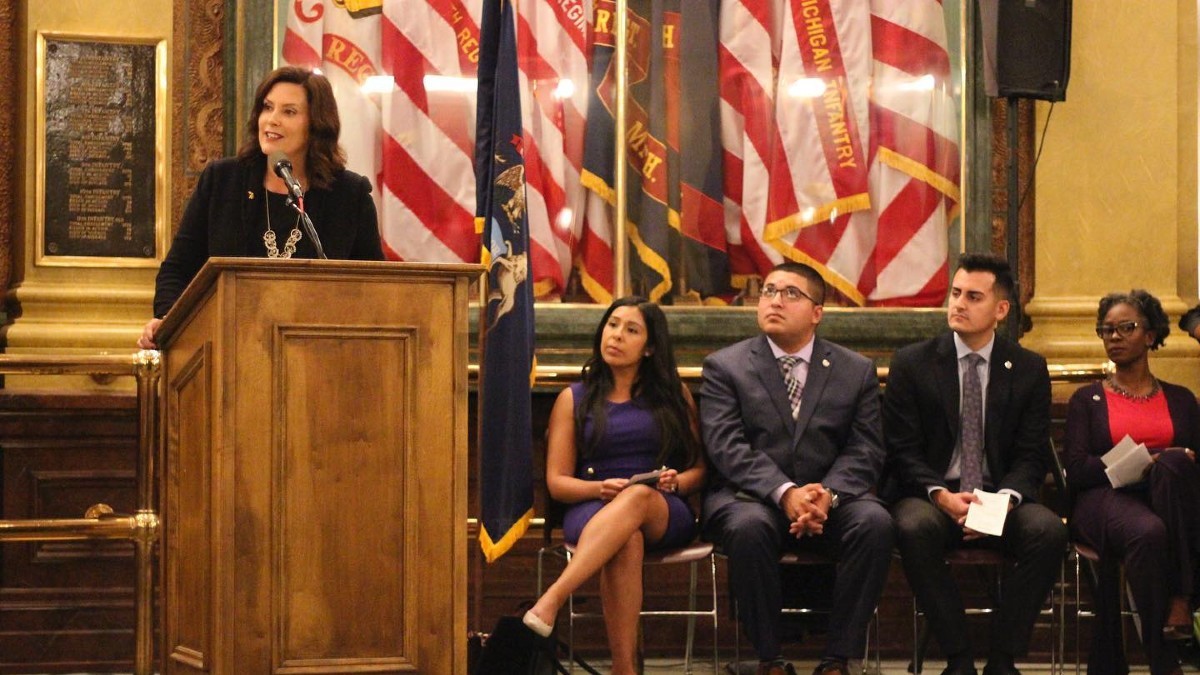Gov. Gretchen Whitmer | stock photo
Gov. Gretchen Whitmer | stock photo
Michigan is divided over hot-topic COVID-19 issues after Gov. Gretchen Whitmer vetoed bills pertaining to small business relief and her own authority over COVID-19 restrictions, if cases begin to rise again, according to reporting by Bridge Michigan.
On March 9, the governor signed off on $2.3 billion in federal funding to provide emergency assistance for families, pay raises for direct care workers pay, school funding and vaccine distribution. However, Whitmer says her decision to veto a portion of the bills can be attributed to the Republican Legislature's failure to negotiate with her.
“The bills I received were not negotiated with me or my administration, and I continue to call on the Legislature to ensure that we work together to ensure we maximize every penny that is available,” Whitmer said, according to a Bridge Michigan report.

Rep. Thomas Albert
| Michigan House Republicans
Of the $5 billion federal relief budget, $1.2 billion is being legally reviewed for possible impositions being included from the Republican Legislature.
In response to the governor's request, the state's budget director, David Massaron, submitted a formal letter to both the House and Senate chairs to request a meeting about possible negotiations for the over $2 billion in funds that remain unused.
Whitmer also vetoed the motion for local health departments to have the ability to determine COVID-19 restrictions based on case numbers in their communities. In her veto letter, she advocates for state mandates to be accessible if they are deemed appropriate in the future.
"COVID-19 does not care about school district or local health department jurisdiction boundaries. As such, there may be times when a statewide order is necessary to protect Michiganders," Whitmer said in her veto letter.
On the opposing side, some state officials believe Whitmer's reasoning for vetoing small business relief is due to her lack of concern for them.
“This desperately needed assistance was not tied to any other measure or condition in the relief plan -- yet the governor vetoed it anyway, and with it, she is killing off whatever hope struggling families and job providers had left,” House Appropriations Chairman Thomas Albert (R-Lowell) told Bridge Michigan.
Small businesses will lose out on the $405 million in proposed business fee and tax breaks as a result of the veto, leaving some of their futures uncertain.
Senate Appropriations Chairman Jim Stamas (R-Midland) believes local health departments should have authority over COVID-19 restrictions. He voiced concern for the governor holding this power, saying tight restrictions will hinder the recovery of the state's residents.
As both sides continue to dispute their differences, in his request for negotiations, Massaron voiced a need for both parties to reach a "common ground" in effort to recover from the global health crisis.
"As I have said before, it is time to set aside partisanship and find a way to work together. I understand there are frustrations and differences of opinion on the pandemic response, but what we can all agree upon is the need to ensure that we are making full use of the resources that are available to us," Massaron wrote in his letter.

 Alerts Sign-up
Alerts Sign-up